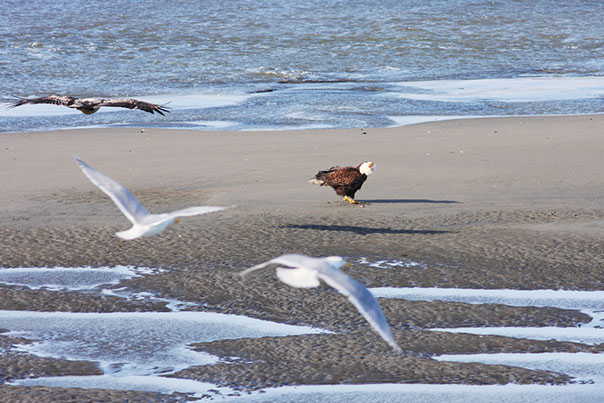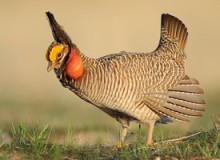WASHINGTON, D.C. – Today, the Independent Petroleum Association of America (IPAA) and the American Petroleum Institute (API) urged the U.S. Fish and Wildlife Service (FWS) to amend the Interim 4(d) Rule for the northern long-eared bat to reflect the fact that oil and gas development activities do not pose a significant threat to the existence of the bat. Failure to provide an exemption would impose unnecessary and costly burdens on the oil and gas industry, the local communities with which these companies reside, and the FWS, while not providing a measurable conservation benefit to the northern long-eared bat.
In their comments on the Interim Rule, IPAA and API made the following points:
- As the FWS has already acknowledged, the northern long-eared bat population is threatened due to the effects of a fungal disease known as White Nose Syndrome – not as a result of human activity, such as the small impacts that oil and gas development activities can have on the bat’s forest habitat.
- Prohibiting all incidental take of the bat from oil and gas development activities will not significantly aid in the conservation of the bat, but will impose costly and unnecessary regulatory requirements on the oil and gas industry.
- Oil and gas development activities have a much smaller impact on the bat’s forest habitat than timber harvesting, which is exempted from the incidental take prohibition by the Interim Rule.
- There are regulatory mechanisms already in place in the states that minimize and mitigate whatever impact oil and gas development activities may have on the bat’s forest habitat.
- The oil and gas industry is willing and able to comply with the conservation measures in the Interim Rule that are designed to protect the bat during its most sensitive life stages.
The full text of the IPAA/API comments can be found here.
Background:
On April 1, 2015, the Obama Administration announced its intent to list the northern long-eared bat as threatened under the Endangered Species Act. Listing this bat species under the ESA will potentially affect development and private property rights in 37 states and the nation’s capital. IPAA joined with numerous other industry groups in January 2014, August 2014, December 2014, and March 2015 urging the Fish and Wildlife Service not to list the northern long-eared bat as endangered.
In their March 2015 comments, IPAA and API specifically requested that all oil and gas development activities be exempted from the prohibition against incidental take of the bat through the proposed special rule. Oil and gas activities have approximately 150 times less impact on bat habitat than the forest management activities that the Service has already exempted. As IPAA President Barry Russell recently pointed out in the Pittsburgh Post-Gazette, the real threat to the northern long-eared bat is a pandemic fungal disease known as white-nose syndrome – not human activity – and an ESA listing offers no tangible benefits to the bat’s population or the prevention of this deadly disease.
About the Independent Petroleum Association of America
The Independent Petroleum Association of America (IPAA) is the leading, national upstream trade association representing thousands of independent oil and natural gas producers and service companies across the United States. Independent producers develop 95 percent of the nation’s oil and natural gas wells. These companies account for 54 percent of America’s oil production, 85 percent of its natural gas production, and support over 2.1 million American jobs. Learn more about IPAA by visiting www.ipaa.org.
###



